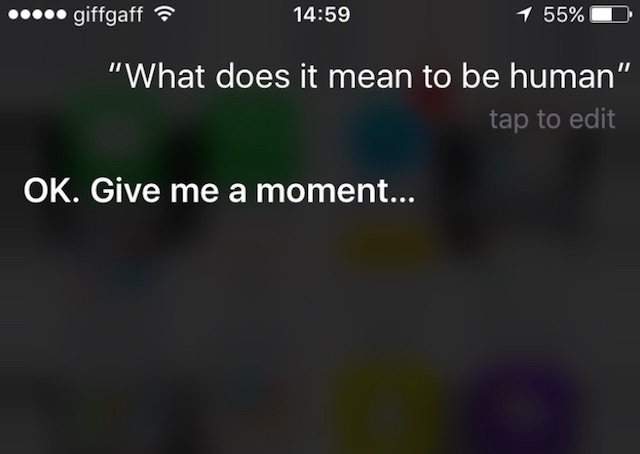
My first car was a silver 1999 Isuzu Hombre. It was a truck, but to call it that isn’t exactly fair considering that it could pass for a Tonka toy when compared to the kind of trucks my friends drove—giant Chevys with lift kits and fresh paint jobs.
It’s possible that my now-thickened adult skin is a result of dealing with the sh*t I took for driving that truck around as a teenager.
But I digress.
Despite the less-than-respectable social status I endured because of my Isuzu Tonka truck, I loved it. It taught me how to drive stick shift, how to make out with girls in small spaces, and how not to take life too seriously. This truck took me places I’d never been, sometimes places I didn’t know I’d end up. I might be the most directionally challenged person on the planet, so in my early driving enthusiasm, I would usually get lost trying to navigate the open Texas roads or the increasingly complicated city grid that was San Antonio.
Without a smartphone, I had two options: keep driving or find someone who looked like they knew where the hell they were and ask them where I should be. There used to be this cliché joke that made its way through stand-up comic routines or Sunday morning sermons about the difference between women and men when it comes to getting lost. A husband is driving around, trying to hide the fact that he has no idea where he is. His wife pleads with him to ask for directions, but he refuses, convinced he can find his way. What followed would be a series of blunders or arguments that would finally lead a dejected man to stop for directions at the nearest Stop-N-Go.
This joke makes no sense to an entire generation of young adults raised with a satellite in their pockets. And why should it? No one gets lost anymore. We live in a world that exists to diminish our struggles. To take away our problems. Why suffer from anything when there’s an app that will make it easier? Why get lost when Siri will guide you? Why endure hunger when our food is fast?
Many of us, especially those who straddle the millennial line, struggle to solve problems we don’t understand because we’re not familiar with the experience of not understanding something. Confusion and uncertainty are foreign to us, and this isn’t a good thing.
Thanks, Google.
Recently, my own experience of being lost has reminded me of what it felt like to navigate those long Texas roads in my Hombre. It’s hard. It’s really hard. It leaves me wondering what my future will be like. I struggle with grief and fear. I feel alone. At times, I feel a soul-deep yearning for which there’s no satisfaction. There’s no relief app on my iPhone. There’s no GPS. There’s no Silicon Valley engineered work-around to deal with existential human crises, because suffering is the price we pay for loving each other. And for letting go. It’s the cost of longing. And there’s no relief from it, not yet at least.
I have two choices. I can either numb my suffering, refusing to ask for help and instead just forge ahead like I know where I’m going. Or I can I sit patiently in this uncertainty, willing to pull over and ask for help when I need it.
I’ve chosen patience. Because I’m more afraid of losing the meaning of my pain than I am of the pain itself. It’s a fear that runs counter to a culture that wants me to move past suffering quickly, get the lesson I need, and then live the easiest life possible. But that’s not the way it works. I only know this because I experienced a significant loss as a child, which taught me that suffering unfolds over a lifetime. It reveals its purpose in its time, and not sooner.
I’ve learned that we never really move past suffering, especially not suffering of our own creation. Instead, we move through it, moment to moment, feeling pain and sorrow and hurt and resilience, then pain again. Then, out of nowhere, a laugh sneaks up on us and the stitch in our side reminds us that it’s been a while since we’ve laughed. So we hurt again, remembering, waiting for another laugh or for the next time we can fall asleep on a dry pillow. This goes on for an unknown amount of time until, without noticing it, we look back over the last few days and realize that we’re doing okay—relatively.
Suffering is life’s only certainty, and a life without it is a life without meaning. No one should long to suffer. But suffering is the risk we take for having treasured something or someone we’ve lost. A dream. A person. An idea. And though we all grant ourselves temporary relief from suffering, we must be careful not to run from it entirely.
Something interesting happens to us when we choose to chronically dampen our suffering with distractions and vices. The acute, sharp pain of the moment softens into a deep and festering apathy that almost certainly prevents us from understanding why we suffer. It stalls our ability to be strengthened by the pain.
I was in San Diego a few weeks ago for a training. I had a free evening, so I decided to head out for a run. Halfway through the run, my predictably unreliable mobile service went out. I didn’t have a clue where I was, something I hadn’t felt in a long time. I was lost. And in that uncertainty, I experienced a small taste of what it means to really live. I wasn’t aware of it in the moment because I was tempted to reach for my usual solutions. But my phone wasn’t working. So my second thought was to retrace my steps—until I remembered my Isuzu Tonka truck. I remembered the feeling of anxiety that settled into my gut when my surroundings became less and less familiar. I realized that despite the fact that I had been lost before, I was still here. Still moving. Still breathing. Still pushing. Still driving.
So I just kept running. I ran until I was truly without hope of finding my way back alone. There were too many unfamiliar roads and too many buildings for me to know where I was. Plus, I hadn’t been paying attention like I should have, so I participated in my own lostness by not remembering where I had turned left or right. A part of me thinks I did this on purpose.
I ran to the top of a hill that overlooked the city. Though I worried I had left my hotel too far behind me to locate, I spotted it from my new perspective on the hill. My phone service kicked in again, finding a cell tower from the elevation, but I ignored it. I sat for a moment and let myself grieve the burden I carried. I called a friend—and then I found my way back home, one step at a time.
I’m tempted to wrap up this stream of consciousness with assurances that suffering has some deep meaning, but it might not. It might be that our suffering makes no sense. After all, sometimes we create suffering through our own choices and then we judge ourselves for it. What a peculiarly human thing to do.
My experience has taught me that there’s always someone who loves me enough to get lost with me, someone who won’t judge me as harshly as I do myself. When I start to believe otherwise, I recognize that as the voice of shame. Shame isn’t suffering. Shame is anathema. It is a human invention that lets us know we’re not quite ready to grow like we think. Shame wants us to keep our burdens to ourselves, but suffering is meant to be observed and shared.
Suffering is the natural consequence of feeling lost. But being lost is okay as long as we have someone to be lost with.
There’s no need to try and be found. In its time, the anxiety and grief that creates loss will soften. At some point, maybe we’ll feel strong enough to struggle to the top of a hill where where can locate the life we’re afraid we’ve left behind. We’ll stay there for as long as we need to.
Then, step by step, we’ll find our way back.
Author: Mathis Kennington
Image: elephant journal
Editor: Emily Bartran






Read 27 comments and reply